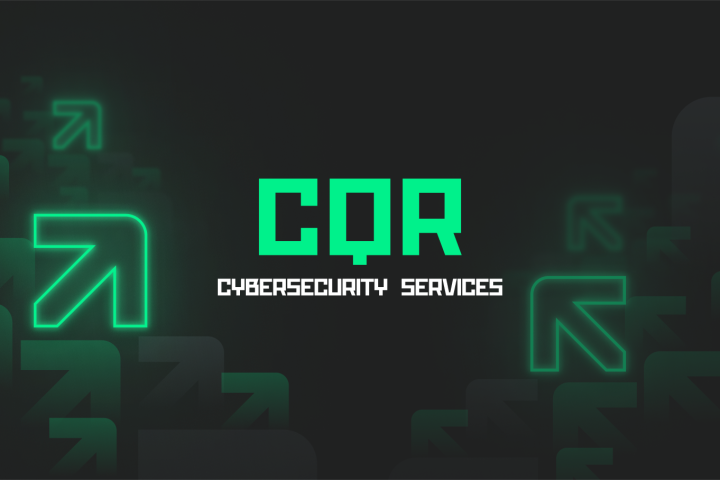This document provides an overview of CQR’s smart contract audit service.
What is Smart Contract Audit?
A smart contract is a program stored on a blockchain that automatically executes when certain conditions are met. These contracts are used in various industries for various purposes. Since blockchain transactions are final, it’s crucial to ensure smart contracts are free from errors and vulnerabilities.
CQR’s Smart Contract Audit Service:
CQR provides comprehensive smart contract audits to help businesses secure their blockchain applications. Their service includes:
- Static Analysis: This involves examining the source code of the smart contract to identify potential vulnerabilities.
- Dynamic Analysis: This involves running the smart contract with different input data to test its functionality and identify any runtime errors.
- Vulnerability Detection: This involves identifying and reporting any vulnerabilities found in the smart contract.
- Security Review: This involves a manual review of the smart contract code to identify any potential security risks.
- Automated Testing: This involves using automated tools to test the smart contract for common vulnerabilities.
- Audit Report: This provides a detailed report of the audit findings, including recommendations for remediation.
Benefits of using CQR’s Smart Contract Audit Service:
- Improved security: By identifying and fixing vulnerabilities, you can significantly reduce the risk of your smart contract being exploited.
- Increased trust: A security audit can help to increase investor and user trust in your project.
- Reduced costs: Fixing vulnerabilities early on can save you time and money in the long run.
CQR’s Smart Contract Audit Process:
- Requirement Gathering: The audit scope is defined, and all relevant documents are collected.
- Unit Testing: Unit tests are used to identify issues in the code.
- Automated Testing: Automated testing tools are used to test the smart contract for common vulnerabilities.
- Security Review: The smart contract code is manually reviewed to identify any potential security risks.
- Audit Report: A detailed report of the audit findings is provided.
CQR supports audits for a variety of blockchain platforms, including:
- Ethereum
- Solana
- Heco
- Polygon
- Xdc
- Near
Additional Services :
- Blockchain security consulting
- Penetration testing
- Web3 security consulting
- Digital asset security
Contact CQR to learn more about their smart contract audit service.
Contact Information:
- Email:
- Phone:
- Message:
Additional Resources:
- Order Now:
- Smart Contract Checklist:
Smart Contract Auditor
A Smart Contract Auditor is a professional who specializes in reviewing and uating the security of smart contracts. They play a critical role in ensuring the safety and integrity of blockchain applications.
Smart contracts are self-executing contracts that are stored on a blockchain. They can be used to automate a variety of tasks, such as managing funds, executing transactions, and controlling access to data. However, smart contracts are also vulnerable to attack if they contain errors or vulnerabilities.
Smart contract auditors use a variety of techniques to identify and assess the risks associated with smart contracts. These techniques include:
- Static analysis: This involves reviewing the source code of the smart contract to identify potential vulnerabilities.
- Dynamic analysis: This involves running the smart contract with different input data to test its functionality and identify any runtime errors.
- Fuzzing: This involves feeding the smart contract with random data to see how it reacts.
- Formal verification: This involves using mathematical proofs to verify the correctness of the smart contract.
Once the smart contract auditor has identified any vulnerabilities, they will provide a report to the developers of the smart contract. This report will detail the vulnerabilities and recommend ways to fix them.
What are the benefits of using a smart contract auditor?
There are many benefits to using a smart contract auditor. These benefits include:
- Improved security: Smart contract auditors can help to identify and fix vulnerabilities before they are exploited.
- Increased trust: A security audit can help to increase investor and user trust in your project.
- Reduced costs: Fixing vulnerabilities early on can save you time and money in the long run.
How to become a smart contract auditor?
There is no one specific path to becoming a smart contract auditor. However, there are a few things that you can do to increase your chances of success:
- Get a strong understanding of blockchain technology: This includes understanding how blockchains work, how smart contracts work, and the different types of vulnerabilities that can affect smart contracts.
- Learn a smart contract programming language: Solidity is the most popular smart contract programming language. However, there are other languages that are also used, such as Vyper and Michelson.
- Gain experience in security auditing: This can be done by participating in bug bounties or by auditing open-source smart contracts.
- Get certified: There are a few different organizations that offer certification programs for smart contract auditors. These programs can help to validate your skills and knowledge.

